Communiqué in Support of Fossil Fuel Subsidy Reform Launched in Washington
On April 17, 2015 in Washington D.C., a group of eight countries known as the Friends of Fossil Fuel Subsidy Reform released a Communiqué encouraging governments to prioritize the reform of fossil-fuel subsidies ahead of the United Nations Climate Change Conference in Paris this year. The Friends, with the support of the International Institute for Sustainable Development, are encouraging other governments to endorse the statement. Both France and the United States have also endorsed the Communiqué.
The IISD’s Global Subsidies Initiative has been a world-leader for more than a decade in the quantification and evaluation of subsidies. The GSI has long made the case that fossil-fuel subsidies are a barrier to sustainable development.
The launch of the Communiqué was chaired by Scott Vaughan, IISD’s President and CEO, and presentations were made by Ministers from the Friends group.
A new motion graphic on fossil-fuel subsidy reform and the Paris Climate Change Conference is available here.
Hashtag: #FossilFuelSubsidyReform
Photo credits: Sam Kittner
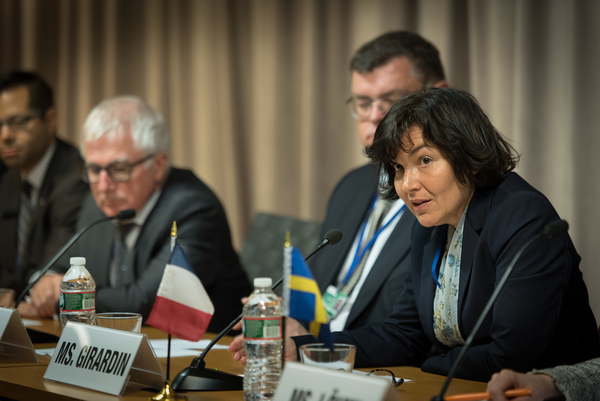
Annick Girardin, Minister of State for Development and Francophony
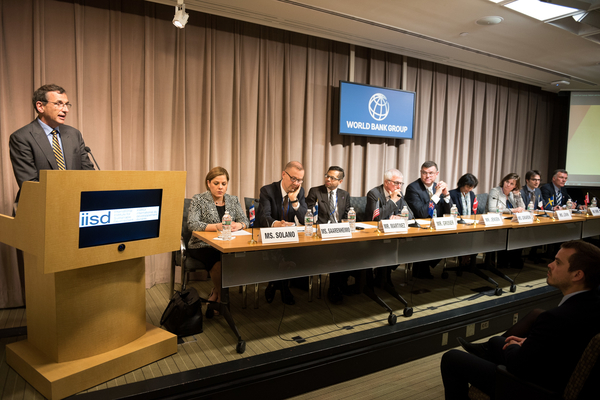
Scott Vaughan, President-CEO IISD
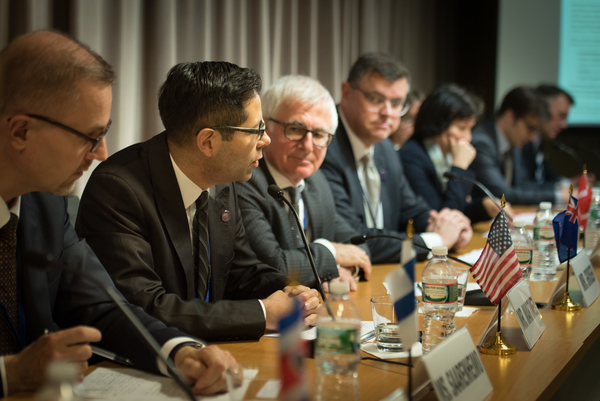
Leonardo Martinez-Diaz, Deputy Assistant Secretary for Environment and Energy, U.S. Treasury Department
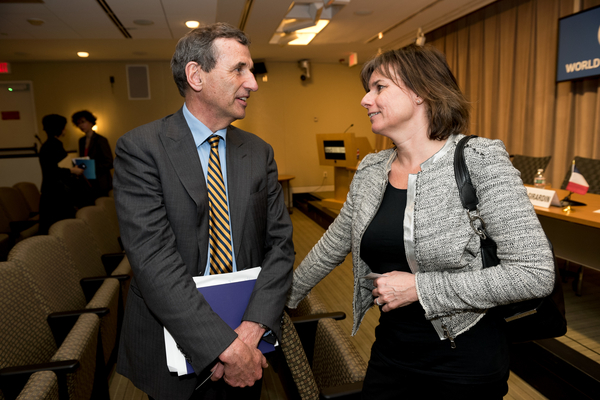
Mr Vaughan with Isabella Lövin, Swedish Minister for International Development Cooperation
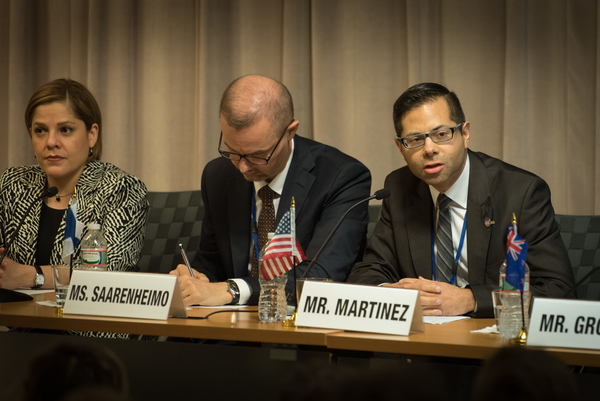
Ms. Alejandra Solano Cabalceta, Minister Counsellor, Costa Rica, Mr. Tuomas Saarenheimo, Permanent Under-Secretary, Ministry of Finance, Finland with Mr Martinez
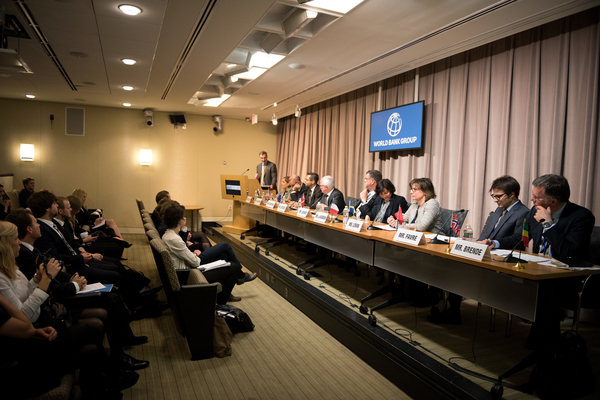
Friends of Fossil Subsidy Reform and supporters
About IISD
The International Institute for Sustainable Development (IISD) is an award-winning independent think tank working to accelerate solutions for a stable climate, sustainable resource management, and fair economies. Our work inspires better decisions and sparks meaningful action to help people and the planet thrive. We shine a light on what can be achieved when governments, businesses, non-profits, and communities come together. IISD’s staff of more than 250 experts come from across the globe and from many disciplines. With offices in Winnipeg, Geneva, Ottawa, and Toronto, our work affects lives in nearly 100 countries.
You might also be interested in
What Drives Investment Policy-makers in Developing Countries to Use Tax Incentives?
The article explores the reasons behind the use of tax incentives in developing countries to attract investment, examining the pressures, challenges, and alternative strategies that exist.
What Is the NAP Assessment at COP 29, and Why Does It Matter?
At the 29th UN Climate Change Conference (COP 29) in Baku, countries will assess their progress in formulating and implementing their National Adaptation Plans. IISD’s adaptation experts Orville Grey and Jeffrey Qi explain what that means, and what’s at stake.
How to Track Adaptation Progress: Key questions for the UAE-Belém work programme at COP 29
UAE-Belem work program at COP 29: Emilie Beauchamp explains the complexity behind these talks and unpacks seven key questions that negotiating countries should address along the way.
COP 29 Must Deliver on Last Year’s Historic Energy Transition Pact
At COP 29 in Baku, countries must build on what was achieved at COP 28 and clarify what tripling renewables and transitioning away from fossil fuels means in practice.